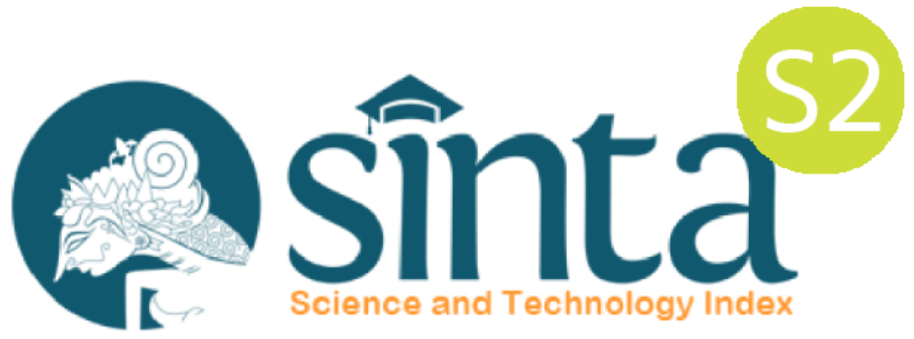IMPLEMENTASI METODE QUANTUM TEACHING TERHADAP PENINGKATAN HASIL BELAJAR MATEMATIKA PADA SISWA SEKOLAH MENENGAH PERTAMA
DOI:
https://doi.org/10.35316/alifmatika.2021.v3i1.45-54Keywords:
mathematics, learning model, discussion method, quantum teachingAbstract
In general, this study was to determine the application of the quantum teaching-learning method with the discussion method in improving mathematics learning outcomes for seventh-grade students of SMP Negeri 2 Dolok Pardamean, Simalungun Regency. This study used experimental research on grade VII students of SMP Negeri 2 Dolok Pardamean, Simalungun Regency. The research was conducted by taking samples from two classes, namely the experimental class (15 students per class) and the control class (15 students per class). The sample categories were taken from two of four parallel categories that were determined randomly (random category samples). The tool used in this study was a testing technique in the form of empirically verified paper questions. Data analysis used the t-test, first testing for normality and homogeneity. Based on the results of data processing, it was known that the application of the quantum teaching-learning model with the discussion method had a significant effect on increasing mathematics learning outcomes obtained.
Downloads
References
Abdurrahman, A., Siregar, A., & Umam, R. (2018). The effect of feedback as soft scaffolding on ongoing assessment toward the quantum physics concept mastery of the prospective physics teachers. Jurnal Pendidikan IPA Indonesia, 7(1), 41–47.
Abidin, Z., & Tohir, M. (2019). Keterampilan Berpikir Tingkat Tinggi dalam Memecahkan Deret Aritmatika Dua Dimensi Berdasarkan Taksonomi Bloom. Alifmatika: Jurnal Pendidikan Dan Pembelajaran Matematika, 1(1), 44–60. https://doi.org/10.35316/alifmatika.2019.v1i1.44-60
Chatib, M. (2013). Sekolahnya manusia: sekolah berbasis multiple intelligences di Indonesia. Kaifa.
Darmansyah, S. (2011). Strategi Pembelajaran Menyenangkan Dengan Humor. Jakarta: PT Bumi Aksara.
DePorter, B., Reardon, M., & Singer-Nourie, S. (2010). Quantum Teaching: Mempraktikkan Quantum Learning di Ruang-Ruang Kelas. Bandung: PT. Mizan Pustaka.
Djamarah, S. B. (2010). Guru dan Anak Didik Dalam Interaksi Edukatif : suatu pendekatan teoritis psikologis. Jakarta: Rineka Cipta.
Faj, N. A., Fakhri, J., & Yusandika, A. D. (2018). Efektifitas Model Pembelajaran Quantum Teaching dengan Metode Praktikum terhadap Hasil Belajar Peserta Didik. Indonesian Journal of Science and Mathematics Education, 1(2), 135–141.
Fathurrohman, M. (2015). Model-model Pembelajaran Inovatif: Alternatif Desain Pembelajaran yang Menyenangkan. Yogyakarta: ArRuzz Media.
Kurniawati, I., & Taufik, Y. (2015). The Implementation Of Education Concept 2+ 1 And Estabishing The Professionalism Of Graduates Polytechnic LP3I Bandung. International Conference on Economics and Banking (Iceb-15), 277–282. Atlantis Press.
Ningrum, A. P., Lesmono, A. D., & Bachtiar, R. W. (2017). Pengembangan Bahan Ajar Berupa Modul Berbasis Quantum Teaching pada Pembelajaran Fisika di SMA. Jurnal Pembelajaran Fisika, 5(4), 315–320.
Prasetyasni, Y., & Hadi, S. (2012). Perbedaan Penerapan Model Pembelajaran Quantum Teaching dengan Metode Konvensional dalam Hasil Belajar Siswa. Economic Education Analysis Journal, 1(2), 1–6.
Raheem, A. (2011). Effects of Discussion Method on Secondary School Students’ Achievement and Retention in Social Studies. Ekiti, Nigeria: University of Ado-Ekiti. European Journal of Educational Studies 3 (2), Pp: 293-301, Published by Ozean Publication.
Rohmayasari, N. (2010). Pengaruh Pembelajaran Matematika dengan Pendekatan Kontekstual (CTL) terhadap peningkatan Kemampuan Berpikir Analitis dan Kreatif Siswa SMA di Jawa Barat. Skripsi Jurusan Pendidikan Matematika FKIP UNPAS: Tidak Diterbitkan.
Rumapea, G., Syahputra, E., & Surya, E. (2017). Application of Quantum Teaching Learning Model to Improve Student Learning Outcomes. International Journal of Novel Research in Education and Learning, 4(2), 118–130.
Rusman. (2011). Model-model pembelajaran: Mengembangkan profesionalisme guru. Jakarta: Rajawali Pers/PT Raja Grafindo Persada.
Siahaan, K. W. A., Lumbangaol, S. T. P., Marbun, J., Nainggolan, A. D., Ritonga, J. M., & Barus, D. P. (2021). Pengaruh Model Pembelajaran Inkuiri Terbimbing dengan Multi Representasi terhadap Keterampilan Proses Sains dan Penguasaan Konsep IPA. Jurnal Basicedu, 5(1), 195–205.
Sugiyono, S. (2017). Statistika untuk Penelitian (28th editi). Bandung: Alfabeta.
Sultan, L., & Hajerina, H. (2020). Penerapan Model Pembelajaran Quantum Learning untuk Meningkatkan Hasil Belajar Siswa Kelas VII A MTs. Alkhairaat Biromaru pada Materi Aritmatika Sosial. Guru Tua: Jurnal Pendidikan Dan Pembelajaran, 3(1), 7–20.
Suryani, I., & Sari, S. A. (2014). Increasing Knowledge Of The Earthquake Preparedness Through Quantum Teaching Model On State Primary School 19 Banda Aceh. The International Journal Of Social Sciences, 19(1), 39–44.
Yani, W. (2017). Pengaruh Metode Pembelajaran Quantum Teaching Terhadap Hasil Belajar Matematika Siswa Kelas VII SMP IT Inayah Ujungbatu. Jurnal Ilmiah Mahasiswa FKIP Prodi Matematika, 2(2), 1–5.
Downloads
Published
How to Cite
Issue
Section
License
COPYRIGHT NOTICE
Author (s) who publish in Alifmatika: Jurnal Pendidikan dan Pembelajaran Matematika agree to the following terms:
- The Author (s) submitting a manuscript do so on the understanding that if accepted for publication, copyright of the article shall be assigned to Alifmatika: Jurnal Pendidikan dan Pembelajaran Matematika, Tarbiyah Faculty of Ibrahimy University as the publisher of the journal. Consecutively, author(s) still retain some rights to use and share their own published articles without written permission from Alifmatika: Jurnal Pendidikan dan Pembelajaran Matematika. This work is licensed under a Creative Commons Attribution-ShareAlike 4.0 International License.
- Copyright encompasses rights to publish and provide the manuscripts in all forms and media for the purpose of publication and dissemination, and the authority to enforce the rights in the manuscript, for example in the case of plagiarism or in copyright infringement.
- Alifmatika: Jurnal Pendidikan dan Pembelajaran Matematika and the Editors make every effort to ensure that no wrong or misleading data, opinions or statements be published in the journal. In any way, the contents of the articles and advertisements published in Alifmatika: Jurnal Pendidikan dan Pembelajaran Matematika are the sole responsibility of their respective authors and advertisers.
- The Copyright Transfer Form can be downloaded here [Copyright Transfer Form Alifmatika]. The copyright form should be signed originally and send to the Editorial Office in the form of original mail, scanned document to alifmatika[at]ibrahimy.ac.id or upload the scanned document in the comments column when sending the manuscript.























_by_Matematohir.jpg)






